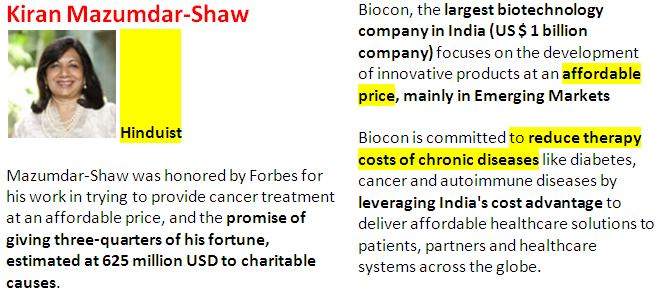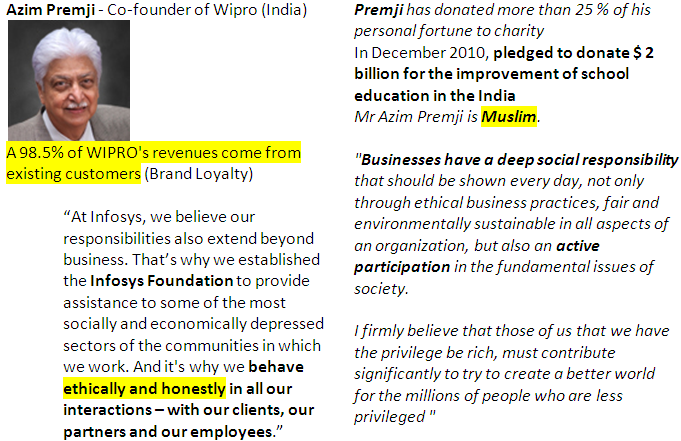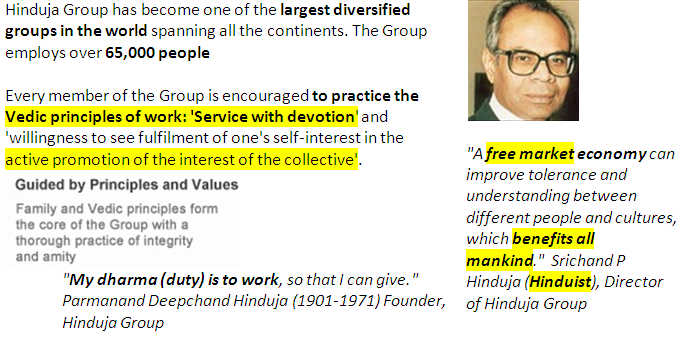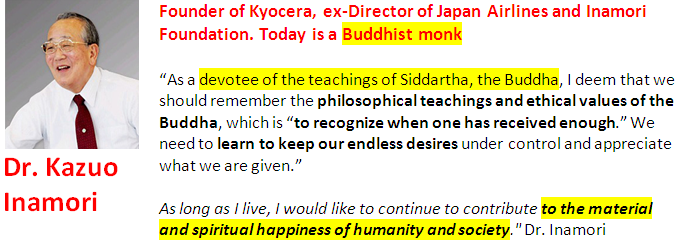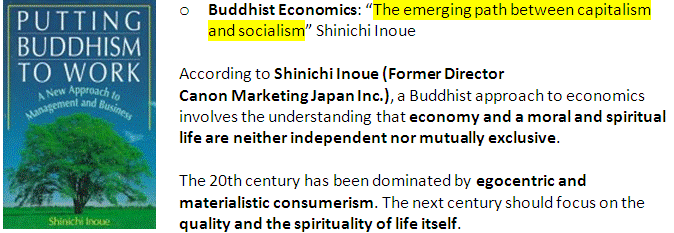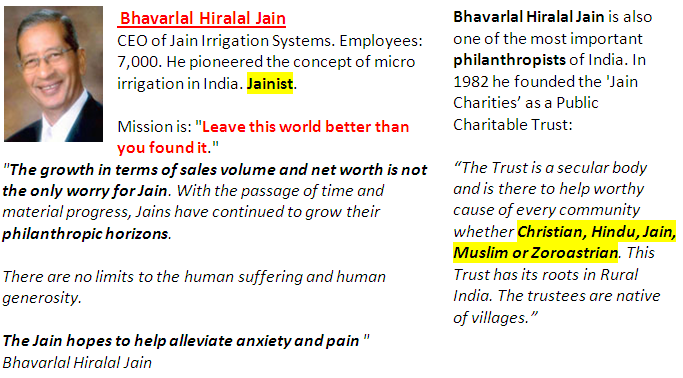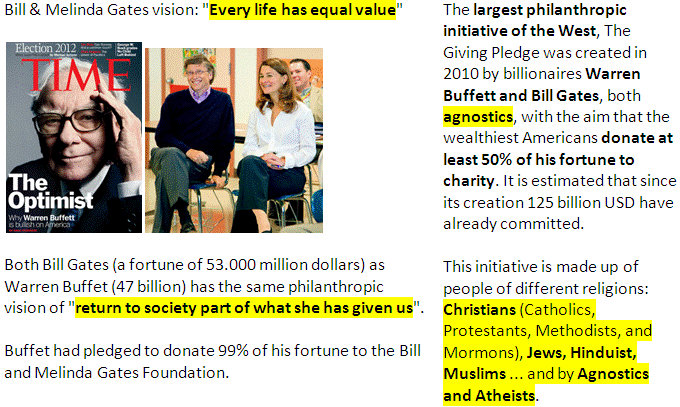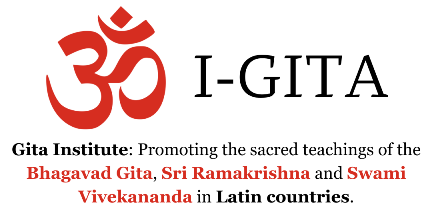Why do we need global ethics?

Worldwide crisis (financial, economics) global ethics for business
- The necessity of a model of a global ethics
- Implications of global ethics on business and Globalization
- Some cases of Businesspeople who apply Models of Global Ethics:
- Kiran Mazumdar (Founder of Biocom. India. Hindu)
- Azim Premji (Founder of Wipro. India. Muslim)
- Srichand Hinduja (Founder of the Hinduja Group. India. Hindu)
- Kazuo Inamori (founder of Kyocera. Japan. Zen Buddhist Monk)
- Bhavarlal Hiralal Jain (Director of Jain Irrigation. India. Jain)
- Carlos Slim (Founder of Carso Group. Mexico. Christian)
- Bill Gates and Warren Buffet (founders of the largest philanthropic initiative: The Giving Pledge, the U.S., Agnostics)
- Final conclusions




The Subject “Why do we need a global ethics?” belongs to the following Online Programs taught by EENI Global Business School:
Master: International Business.
Doctorate: Ethics, Religions & Business.
Languages:  or
or  Ética Global
Ética Global  Éthique mondiale.
Éthique mondiale.
Principle of Racial Harmony (James Emman Kwegyir Aggrey).

Why do we need the global ethics?
Worldwide crisis (financial, economic, and politic): need for a Global Ethics.
How we have seen, global ethics influence on:
- International Business: “Towards an Ahimsa Company?”
- New Globalization model
- Science
- Education. Towards an education in values which transcends cultures
- Politics
- Religions and Culture Dialogue
Global Ethics influence on global business and Globalization.
1- International Business and Global Ethics.
a) International Marketing Strategies
Adapt globally with global ethics principles.
Impact on:
- Marketing plan: product design, promotion and communication policies, prices, distribution strategies, positioning, branding, and segmentation
- Value Chain (Suppliers, Distributors, Branch)
- People (Workers, Managers, Directors) Code of Ethics
b) Trusted Relationships.
Business growth and brand loyalty.
C) avoid the intercultural clashes.
The Intercultural Management (Hofstede, Edward Hall) measures the differences between cultures. Global Ethics is based on the shared values.
d) Digital Economy. Google, Facebook.
Who define privacy limits ?
2- New globalization model.
Free market based on the global ethics principles and respecting environment and humanity.
Towards a Spiritual Capitalism and “Ahimsa Company”: The success of a company is measured by:
- Values: integrity, non-violence (Ahimsa), and tolerance
- Results: efficiency, profitability
Remember: the spiritual leaders are showing the path. Some of the world's Business leaders are developing their teachings.
We need to open our mind and our heart to non-Western vision.

To Hinduism.
To Buddhism.


To Islam.
Zakat (solidarity).
- The Zakat tax as the basis of the Islamic fiscal policy
- Quoted thirty-four times in the Quran
- A good Muslim should pay annually 2.5% of its assets of its net wealth, to benefit the poorest brothers or in a state of disgrace
The role of the banks in the global Economy
- Under the principles of Islamic Finance, a Bank cannot be a single lender who is not involved in the business; the Bank should be a financial partner
- The Bank assumes the risks of the company and therefore has a part of the business ownership
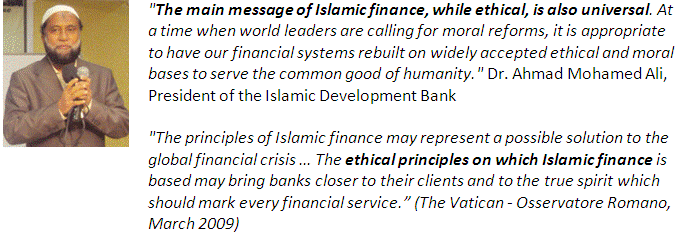
“Now I have just my dresses. I donated all my possessions” Sulaiman Al-Rajhi is the founder of one of the World's largest Islamic banks.
To Jainism.

To Christianity.
Carlos Slim (the world's richest men)

To Agnostics.
Economy, finance, and politics have been globalized. Why not ethics?
The history of humanity has bequeathed us through our ancestors these wisdom traditions, these open windows to understanding, that today, in the digitalization and globalization era; we can lose.
The English poet T.S. Elliot explained us this risk with these beautiful and thoughtful words.
“Where is the knowledge we have lost in information?
Where is the wisdom we have lost in knowledge?” TS Elliot.
The Bhagavad Gita, the sacred book of Hinduism, wrote 2,300 years ago, says:
“When the kindness declines
When the wickedness increases
When the purpose of the life is forgotten
I will manifest, I will return
To pronounce the sacred; to destroy the sin of the sinner
To re-establish the way of the principles” The Bhagavad Gita.

(c) EENI Global Business School (1995-2024)
We do not use cookies
Top of this page




